BTS Bangtan Universe's V: Existentialist Hero of a Greek Tragedy? (feat. the Human Control System)
Since getting into BTS' alternate universe storyline and getting familiar with with the characters, it started to dawn on me that V's character and story in particular is the stuff of Greek Tragedy. Singularity more or less confirmed it for me but also opened up the possibility that V is not your typical Tragic Hero either.
I. V's BACKGROUND IN THE #BangtanUniverse
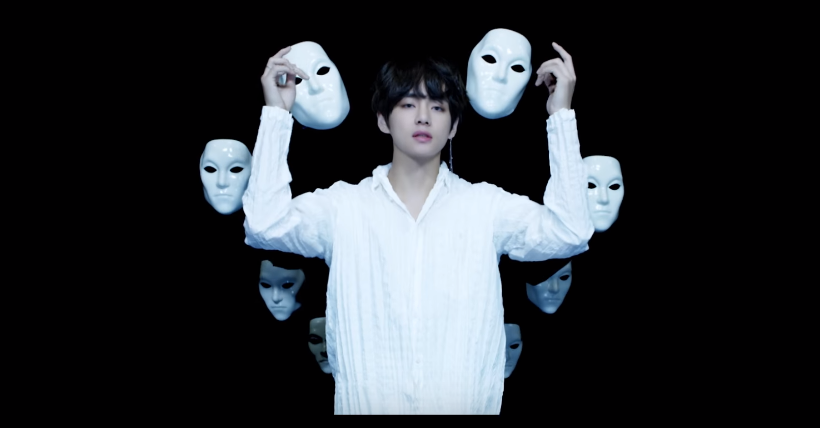
V and his sister live with their alcoholic father. There is no mother in the picture. It's evident from the Notes included in the Love Yourself:Her CDs that he is physically abusive and was already violent when V was only a child.
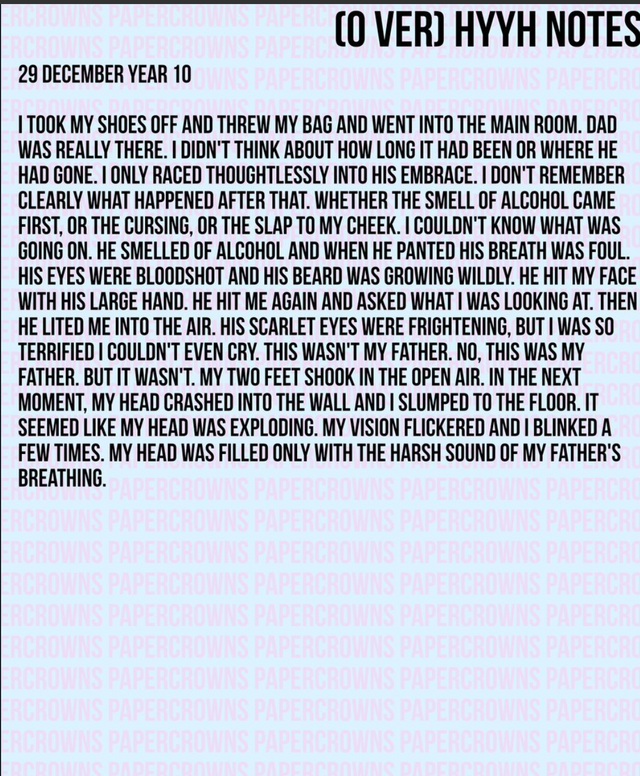
As violent alcoholics rarely get less violent without intervention - it's actually the opposite, the violence increasing as time passes - it's not an exaggeration to say that V was living with his future killer. His fate was more or less sealed: to eventually killed by his father....unless he killed him (the father) first. We see in the MV for I Need U the choice V makes.
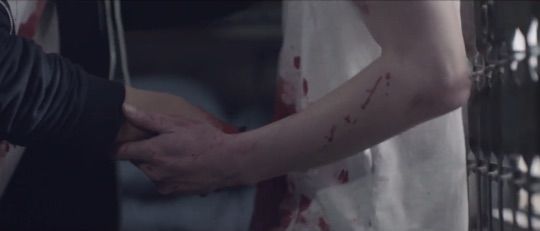
II. V'S GREEK TRAGEDY
So we can see that V's narrative is defined and framed by themes characteristic of Greek Tragedy:
- Fate...that the characters are unable to escape
- Revenge
- Being pre-ordained by destiny to either be killed by a parent or kill a parent. Since it's his father in V's case, his story recalls that of Sophocles' Oedipus Rex. Recall that Oedipus' father attempts to kill his own son, Oedipus, because of a prophecy that Oedipus would kill his father and marry his mother. In spite of the father's actions, Oedipus lives to fulfill
that tragic destiny.
Reminiscent of classic Greco-Roman Tragedy and myth, V makes the choice (or reflex) to kill his father. But given his circumstances - where the possibilities are either kill or be killed by your father - it begs the question, did he really have a choice?
Was V indeed free to make that choice? And having made it, is there still a possibility for him to be free?
III. EXISTENTIALISM IN THE TRAGEDY
"Is it possible to be free in the most constrained of circumstances, where your choices are so narrow that they seem to be fated beyond your control?"
This is a question that preoccupied Existentialist philosopher Jean-Paul Sartre and that he explores in his Greek Theater-inspired play, The Flies (Les Mouches, in French). [An aside: Sartre was particularly interested in Greek myths and theater for this very quality of setting up its characters in situations that begged such a question] You may find a summary of The Flies here: http://www.sparknotes.com/drama/theflies/summary/ … The important part is that Orestes and his sister, much like V and his sister, are set up in a destiny where they have to kill to commit m/patricide.
It's important to remember that Sartre wrote this play at the height of the Nazi occupation of France, when it was worth wondering in such a situation besieged/enslaved citizens like him could still be free. He wrote The Flies to illustrate his philosophy that freedom ultimately comes from the mind. Even in such a state of siege, if one decides in one's mind to be free and makes decisions from that basis, one is free. Unlike Oedipus, who arguably was very much a victim of his fate, commiting his patricide in ignorance and lacking agency in that act as well as the rest of his life, V knew perfectly well what he was facing. Of the 2 fated choices before him, he chose the one that gave him the most agency and defied the "gods", which in his case are the prevailing social norms. In this very important sense, he is closer to Orestes than to Oedipus.
Choosing to defy the gods and assert his own freedom, in spite of knowing the fated outcome, also connects V to Icarus. In a possible interpretation of the myth, Icarus knew that listening to his father to keep within the limits of nature and make it to land simply guaranteed the same humdrum existence and that no other point in his life would feel as liberating - "authentic" the Existentialist philosophers might even say - as that moment in mid-flight. So he defied the gods and flew higher toward Apollo and his doom.
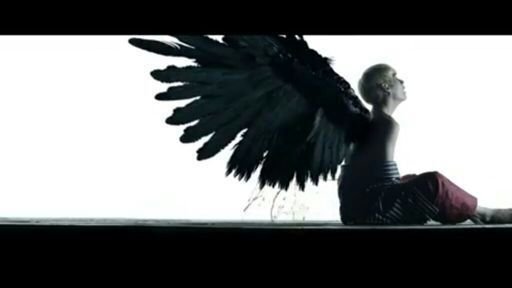
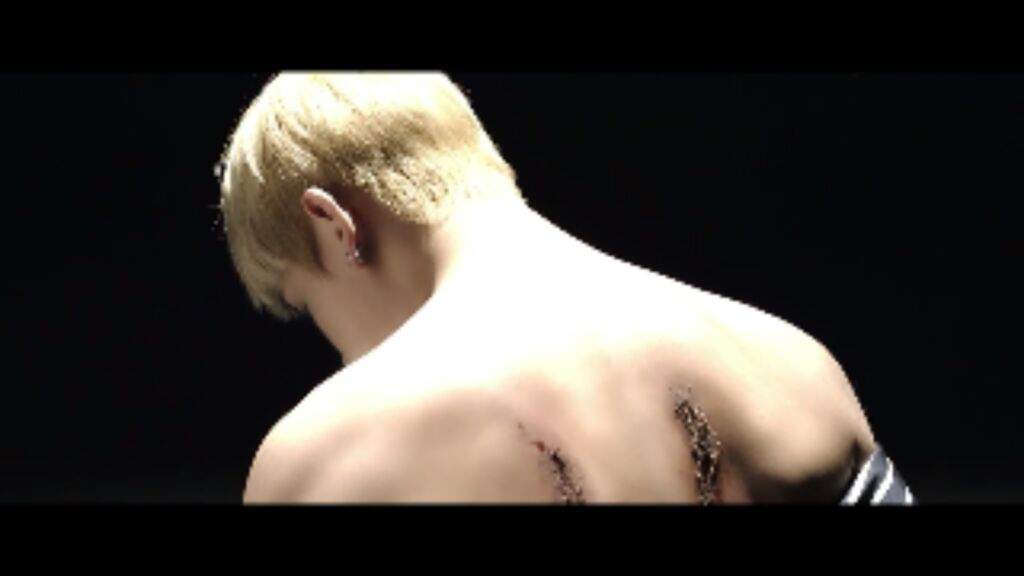
IV. EXISTENTIALISM IN THE SINGULARITY
So what are the consequences of V's actions? The external ones are clear: he is under pursuit of the law - what Michel Foucault and his contemporary political philosophers referred to as the State's monopoly on violence.
But what about within? If as Sartre asserted in The Flies, freedom starts from the mind, even in the face of violence - state-sanctioned and legitimate or otherwise - does V attain the consciouness of his freedom that Orestes does? I believe the answer lies in the #Singularity. The music video and lyrics establishes early on that it's about V's internal state, his "heart". Notice how the masks literally form a heart around V.
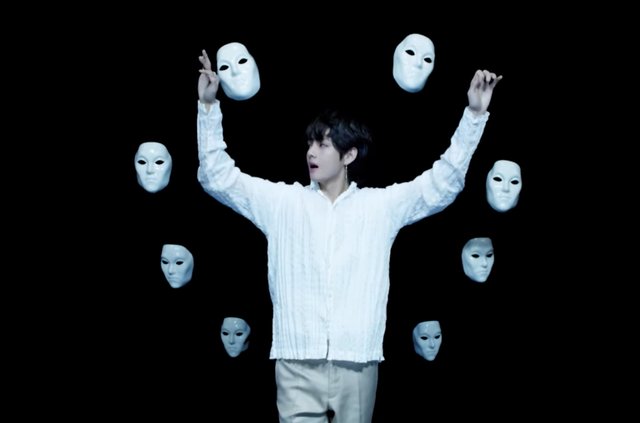
I believe those masks serve as the Chorus, an essential part of Greek Tragedy. Among other things, the Chorus likely "represented the prevalent views of the contemporary society holding up certain moral and cultural standards – much like the media does for modern people throughout their daily lives" (Haamer, 2018). In other words, the masks represent the unavoidably evaluating and judging gazes of others. When those gazes are negative toward us, Sartre defined it as hell itself in his famous phrase "L'enfer, c'est les autres" (Hell, it's other people):
In this scene from the #Singularity MV we see newspapers and a TV. These are common symbols of government control over the media and therefore over history and truth.
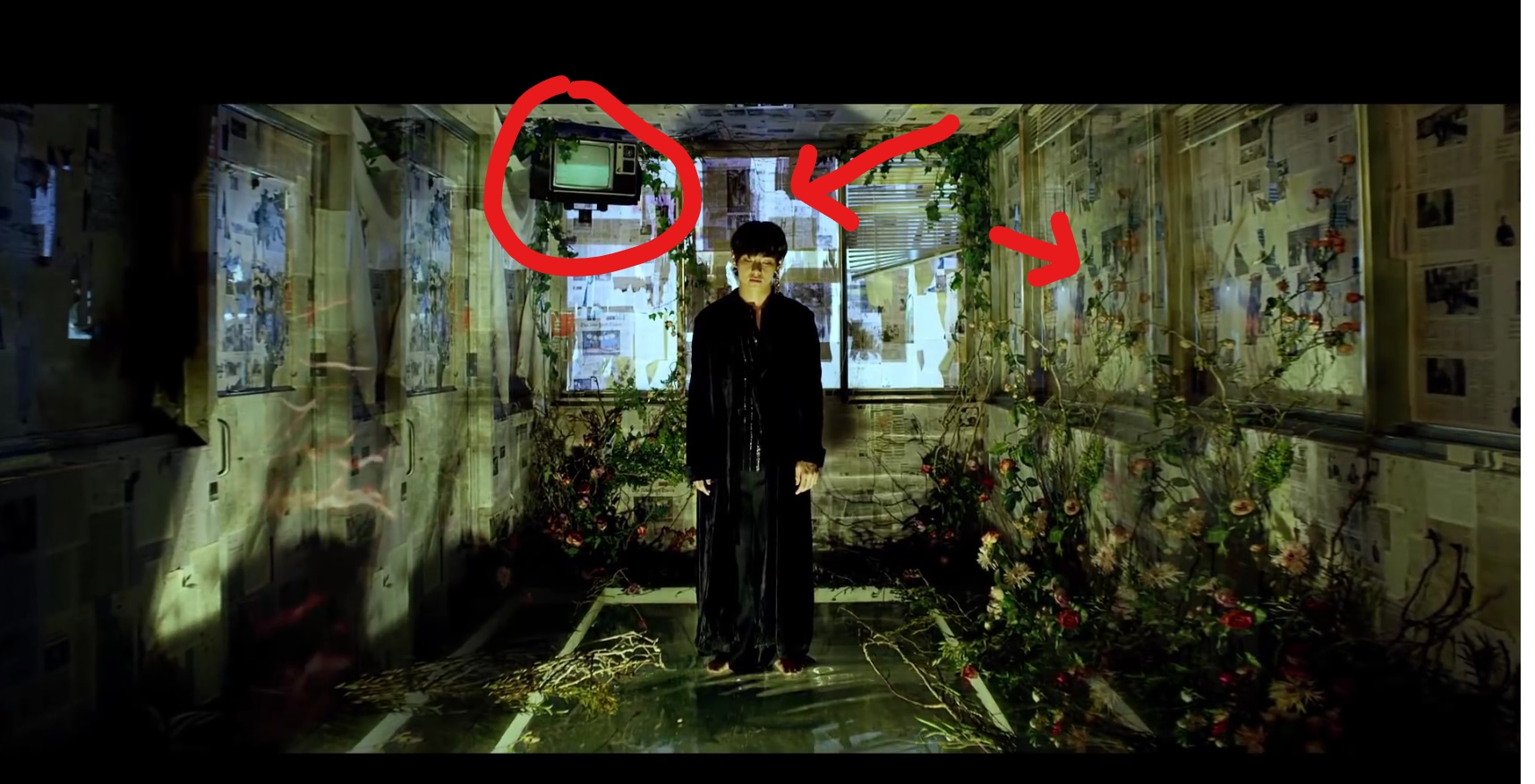
They are favorite symbols and themes used by political dystopia authors like George Orwell to warn about means of ontrolling the population. In other words, this is the Human Control System. But whereas the political dystopic authors and thinkers worried about an external system of control, V has clearly internalized the Human Control System (as #Singularity is a glimpse into his heart). THis points to Foucault's theory on power, that it is not just physical force or imposed hierarchical structures; power is also embedded in the intangibles of human existence: language, reflexes, thoughts, perceptions of truth, etc.
Can V escape and be free from the Human Control System in his own mind? The lyrics of #Singularity, which references the lake trapping his own identity - his authentic self and freedom - is melting. He asks of "the gods" - societal norms - what was he meant to do? Just let himself be killed? (The gods of societal norms in this case would have said yes; the traditional values of virtue and meekness and filial piety would have dictated he suffer and die silently, kafkaesque) The very act and tone of him asking this question suggests a defiance that again recalls Orestes. That even as he recognizes that he couldn't and wouldn't have acted in any other way but patricide, he seems to be going toward accepting and taking responsibility for his past actions (contrast this to Electra who tries to shift blame and gives in to a narrative of guilt and victimhood). This is in fact the philosophy of Amor Fati:
But then, at the end of #Singularity, V wears the mask of the Chorus...so has he decided instead to let himself be defined by the guilt, judgment, and regret that society imposes on him in the end?
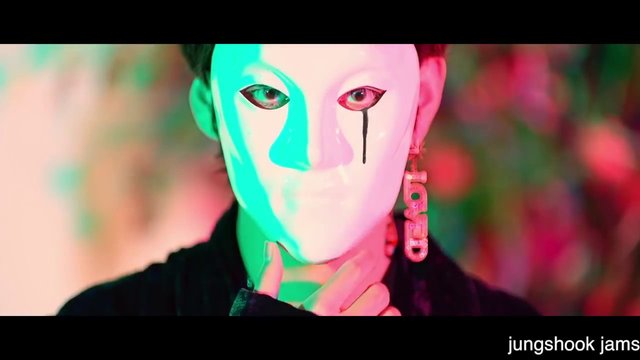
REFERENCES AND FURTHER RESOURCES:
https://www.powercube.net/other-forms-of-power/foucault-power-is-everywhere/ …
http://krishaamer.com/function-chorus-greek-drama/ …
http://www.sparknotes.com/drama/theflies/summary/ …
https://twitter.com/i/moments/918138828581347328?lang=en
✅ @kommonsense, congratulations on making your first post! I gave you an upvote!
Please give me a follow and take a moment to read this post regarding commenting and spam.
(tl;dr - if you spam, you will be flagged!)
Congratulations @kommonsense! You received a personal award!
You can view your badges on your Steem Board and compare to others on the Steem Ranking
Do not miss the last post from @steemitboard:
Vote for @Steemitboard as a witness to get one more award and increased upvotes!